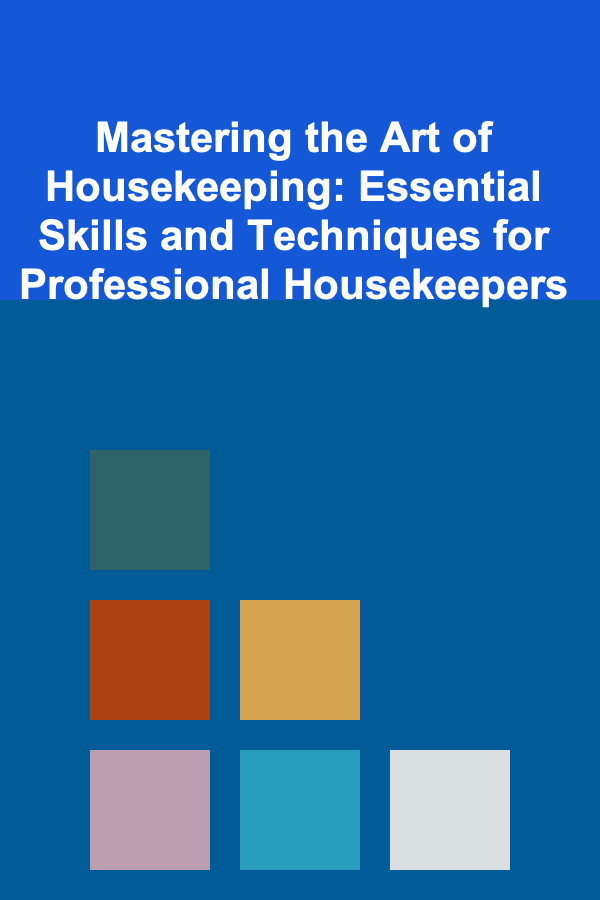
The Do's and Don'ts of Job Searching in a Digital World
ebook include PDF & Audio bundle (Micro Guide)
$12.99$10.99
Limited Time Offer! Order within the next:

In today's fast-paced, digitally-driven world, job searching has evolved significantly from the traditional methods of browsing through newspapers or attending career fairs. The digital world offers a wealth of resources, tools, and platforms to help you land your next job. However, navigating this landscape requires a strategic approach. Knowing what to do---and what to avoid---can make all the difference between landing an interview and being lost in a sea of online applications.
This actionable guide will explore the key do's and don'ts of job searching in a digital world, offering practical advice to help you stand out in an increasingly competitive job market.
The Do's of Job Searching in a Digital World
1. Do Build a Strong Online Presence
Your online presence is your virtual resume. In today's digital age, employers and recruiters frequently search for candidates online before they even consider reviewing a resume. Therefore, building and maintaining a strong online presence is crucial.
- LinkedIn: Make sure your LinkedIn profile is updated with a professional headshot, a compelling headline, and a detailed summary of your skills, experience, and accomplishments. LinkedIn also allows you to showcase your work samples, ask for recommendations, and follow industry leaders.
- Personal Website or Portfolio: If relevant to your industry, having a personal website or an online portfolio is an excellent way to showcase your skills and work. Designers, writers, developers, and photographers, for instance, should use these platforms to display their portfolios, making it easier for potential employers to assess their abilities.
- Social Media: While platforms like Twitter or Instagram are often seen as personal spaces, using them strategically for professional purposes can help you stand out. Follow industry leaders, engage in conversations, and share your thoughts on trends and challenges in your field.
2. Do Customize Your Resume and Cover Letter for Each Job
When applying for jobs online, it's tempting to use the same resume and cover letter for every application. However, this is one of the biggest mistakes you can make.
- Tailor Your Resume: Customize your resume to highlight skills and experience relevant to the specific job you are applying for. Use keywords from the job description, as many companies now use Applicant Tracking Systems (ATS) to filter resumes based on these terms.
- Personalize Your Cover Letter: A personalized cover letter can make a huge difference. Address it to the hiring manager (if possible) and mention the specific role and why you're a good fit. Explain how your skills align with the company's needs and culture.
3. Do Use Job Search Engines and Networking Platforms
While networking through personal connections is valuable, job search engines and networking platforms can offer a broader reach.
- Job Boards: Websites like Indeed, Glassdoor, and Monster provide access to a wide variety of job listings. However, don't rely solely on these---many high-quality opportunities may be posted on niche job boards specific to your industry.
- Company Websites: Always check the career pages of companies you're interested in. Many companies post job openings there first before listing them on third-party job boards.
- Networking: Use LinkedIn to build relationships with professionals in your industry. Engage with their posts, reach out with personalized messages, and ask for advice or referrals. Networking is often the best way to hear about job openings before they are posted publicly.
4. Do Keep Your Online Profiles and Resumes Professional
In the digital world, it's easy for employers to see everything you post online. Before starting your job search, take the time to clean up your social media accounts and ensure that they present a professional image.
- Audit Your Social Media: Review your Facebook, Twitter, and other platforms to ensure your posts are appropriate for potential employers to see. Remove or archive any posts that may be considered unprofessional or controversial.
- Professional Email Address: Use a professional email address (e.g., your name or an initial and last name combination) for all job-related correspondence. Avoid using nicknames or humorous emails that may not convey professionalism.
5. Do Follow Up After Applications and Interviews
A critical but often overlooked part of the job application process is following up.
- After Applications: If the application process doesn't provide clear timelines for follow-ups, wait about one to two weeks before checking in. A polite, professional email can show your continued interest in the position.
- After Interviews: Always send a thank-you note within 24 hours of an interview. Express appreciation for the opportunity, reiterate your enthusiasm for the role, and highlight any points from the interview that reinforce your qualifications.
The Don'ts of Job Searching in a Digital World
1. Don't Spam Applications
It can be tempting to apply to as many jobs as possible to increase your chances of success. However, mass applications without tailoring your resume or cover letter significantly decrease your chances of standing out.
- Quality Over Quantity: Instead of sending out hundreds of generic applications, focus on a smaller number of positions where you're truly interested in the role and where your skills are a good match. Personalize each application to show your genuine interest.
- Research the Company: Before applying, research the company and the position to ensure that it's a good fit. A poorly tailored application not only hurts your chances but can also waste time for both you and the employer.
2. Don't Ignore ATS Systems
Many companies use Applicant Tracking Systems (ATS) to screen resumes before they are even seen by a human. Ignoring this fact can cause your resume to be rejected even if you're a strong candidate.
- Optimize for ATS: To improve the chances of your resume getting noticed, use keywords from the job description. These systems often look for specific terms related to skills, qualifications, and experience. Avoid using unusual fonts or graphics that may confuse the ATS.
- Format Your Resume Properly: Keep your resume format simple, using standard headings like "Experience," "Education," and "Skills." Stick to a straightforward, text-based layout to ensure ATS compatibility.
3. Don't Overlook the Power of Soft Skills
In a digital environment where communication is mostly virtual, soft skills like communication, time management, and adaptability are just as important as technical skills. Don't overlook the importance of showcasing these skills during your job search.
- Highlight Soft Skills: In addition to technical expertise, employers value candidates who demonstrate strong interpersonal skills. Whether it's in your resume, cover letter, or interview, make sure to communicate your ability to work remotely, manage time effectively, and collaborate in a virtual environment.
- Provide Examples: When discussing your soft skills, provide examples from previous work or volunteer experiences that demonstrate how you've successfully used these skills in real-world situations.
4. Don't Forget to Be Patient
Job searching in a digital world can feel like a fast-paced and immediate process. However, it's important to remain patient and understand that things may not always move as quickly as you expect.
- Understand the Timeline: After applying, it may take several weeks before you hear back. If you haven't received feedback after a few weeks, don't be discouraged. Many factors can affect the hiring process, from internal discussions to budget reviews.
- Manage Your Expectations: While some job offers may come quickly, others can take time to materialize. It's crucial to stay optimistic and persistent without becoming discouraged by long delays or rejections.
5. Don't Overlook Remote Work Opportunities
Given the rise of remote work, it's essential to not ignore the possibility of working from home, especially if your industry or job function allows for it.
- Embrace Remote Work: Many companies now offer remote or hybrid positions, and remote work can provide a better work-life balance. Be sure to include remote opportunities in your job search and prepare for the specific challenges they present, such as time zone differences and self-discipline.
- Research Remote-Friendly Companies: Look for companies that have a history of hiring remote employees and check if the positions you're applying for offer remote work options. Familiarize yourself with the tools and processes that remote companies use to stay organized and productive.
Conclusion
Job searching in the digital world can feel overwhelming, but by understanding and implementing the right strategies, you can significantly improve your chances of landing a job that fits your skills and goals. Focus on building a strong online presence, customizing your applications, and optimizing your approach for the digital environment. Avoid common pitfalls like mass applications, ignoring ATS, and overlooking the importance of soft skills. Most importantly, be patient, stay organized, and keep learning throughout the process. By following these do's and don'ts, you'll be better equipped to navigate the digital job market and move one step closer to your ideal career.

How to Make Money Online as a Genealogist: 10 Actionable Ideas
Read More
How to Make Money Online as a Teacher: 10 Actionable Ideas
Read More
How to Plan a Family Backyard Olympics with Fun Events
Read More
How to Screen Potential Tenants Effectively and Avoid Problems
Read More
Mastering the Art of Housekeeping: Essential Skills and Techniques for Professional Housekeepers
Read More
How To Print with Multiple Extruders
Read MoreOther Products

How to Make Money Online as a Genealogist: 10 Actionable Ideas
Read More
How to Make Money Online as a Teacher: 10 Actionable Ideas
Read More
How to Plan a Family Backyard Olympics with Fun Events
Read More
How to Screen Potential Tenants Effectively and Avoid Problems
Read More
Mastering the Art of Housekeeping: Essential Skills and Techniques for Professional Housekeepers
Read More